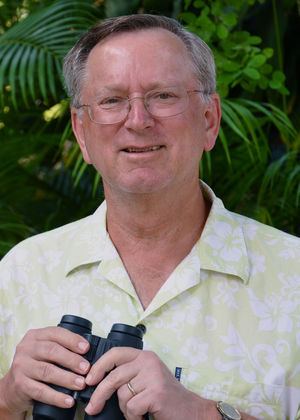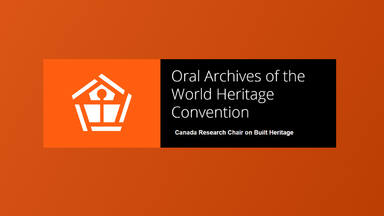
Interview
Jeffrey A. McNeely
World Heritage Convention
After studying anthropology at the University of California, Los Angeles, Jeff McNeely worked for twelve years with various organizations in Asia.
He served as a representative of the WWF-IUCN program in Indonesia for three years before joining IUCN in 1980. He headed the National Parks and Protected Areas Commission and was responsible for IUCN's contribution to World Heritage until 1983. During this period, he evaluated nominations for natural heritage and published, in 1982, a global inventory of natural sites entitled The World’s Greatest Natural Areas : an indicative inventory of natural sites of World Heritage quality. He also addressed issues related to World Heritage at the 1982 World Parks Congress in Bali and in Caracas in 1992.
He subsequently served as Director of the Biodiversity Program and as Chief Scientist until his retirement in 2009. He continued to work with IUCN as a Senior Scientific Advisor until 2012. Member of the International Resource Panel of the United Nations Environment Program (UNEP) and the Board of Directors of EcoAgriculture Partners, he has published more than 40 books and 500 articles on natural resource conservation and biodiversity. These include, among others, Conservation for a New Era (IUCN, 2009) and Farming with Nature: The Science and Practice of Ecoagriculture (Island Press, 2007).
Interview with
Jeffrey A. McNeely
17 September 2010, Gland, Switzerland
The following audio excerpts are from an interview with Jeff McNeely by Mechtild Rössler the 17 September 2010 in Gland, Switzerland. He shares with insight his vision of the natural dimension of the World Heritage Convention. Several of his remarks also refer to political and economic issues of the Convention and situate the role of States Parties and local communities in concrete examples. Finally, Jeff McNeely underlines the importance of properly managing and maintaining World Heritage sites after their inscription.
- 1. The World Heritage Convention
- 1a. Involvement of Jeffrey McNeely in the World Heritage Convention
- 1b. World Heritage List
- 1c. Decisions affecting the implementation of the Convention
- 1d. Potential, successes and failures of the Convention
- 2. Advisory bodies: IUCN, ICOMOS and ICCROM
- 3. The secretariat of UNESCO
- 4. Political dimension of the Convention
- 5. Efforts and involvement of States Parties and the international community
- 6. Re-appropriation of heritage by local communities
Oral Archives of the
World Heritage Convention
Under the leadership of the Canada Research Chair on Built Heritage at the University of Montreal, an international team of researchers conducts interviews with pioneers of World Heritage to capture memories of important moments in the history of UNESCO Convention.
Launched in 2006, this initiative is part of the UNESCO History project that celebrated the 60th anniversary of the creation of UNESCO. The Oral Archives project records the precious witness of people closely associated with the creation and implementation of the Convention. Their recollections and views have greatly enriched the book by Christina Cameron and Mechtild Rössler, Many Voices, One Vision: The Early Years of the World Heritage Convention (Ashgate/Routledge, 2013).
